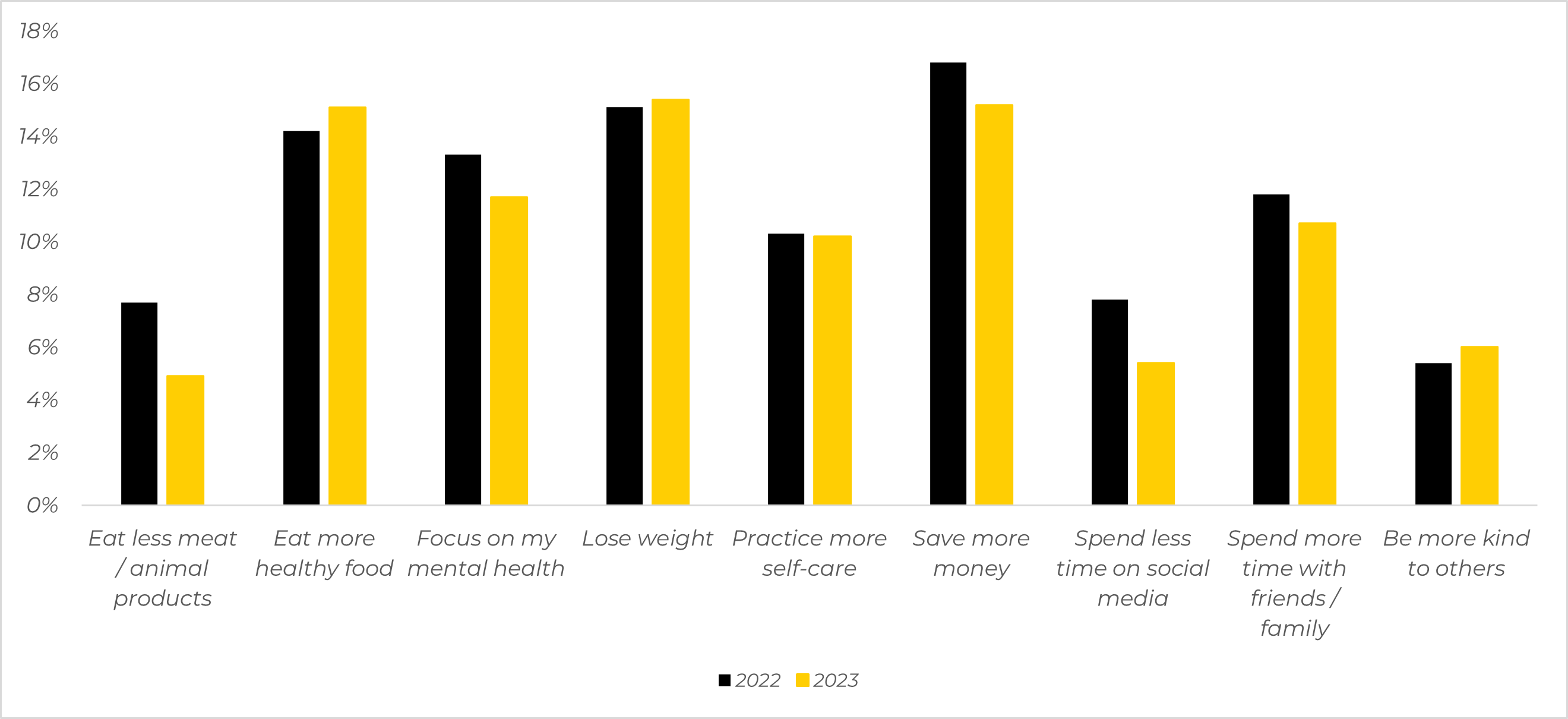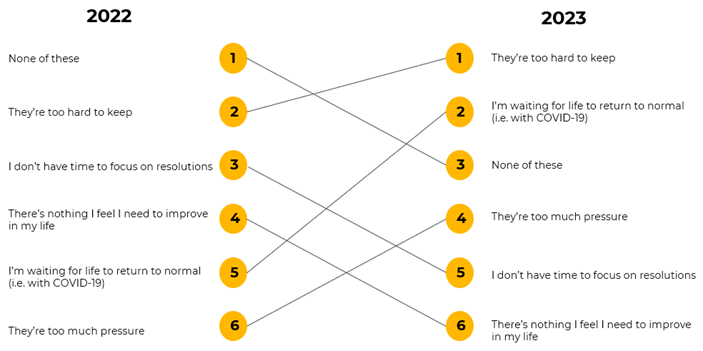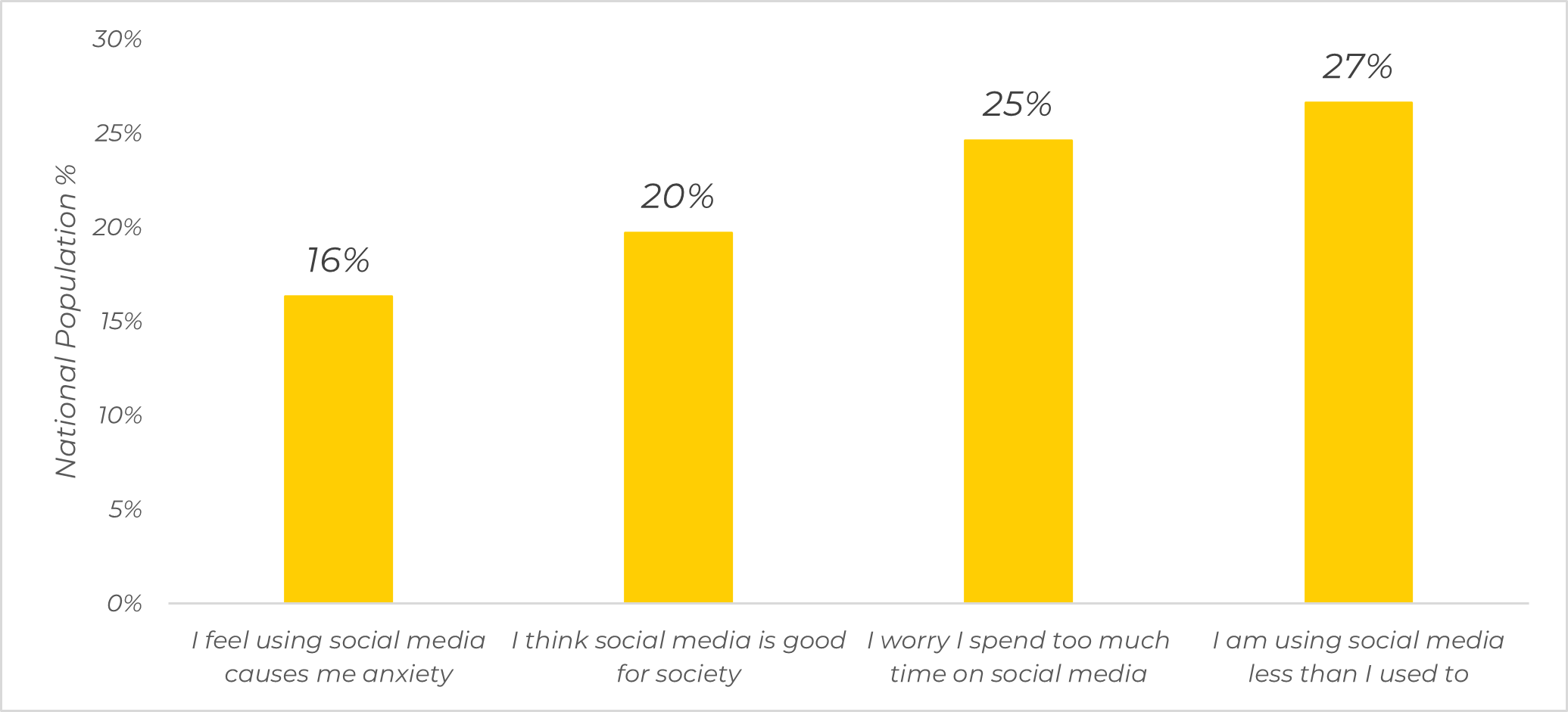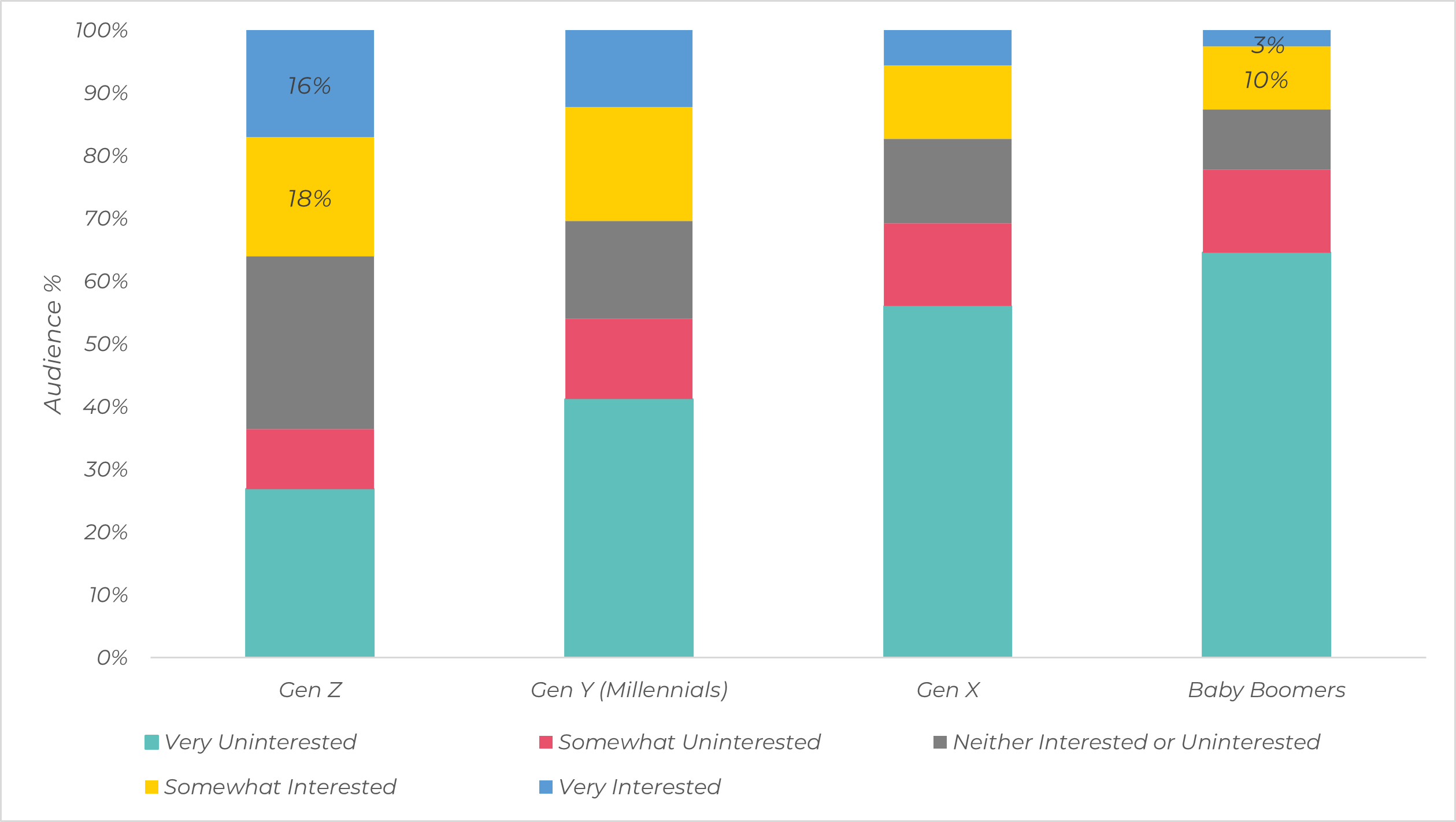
New Year New Me: How do the changes in popularity of New Year’s Resolutions reflect the underlying consumer mood?
It can seem hard to keep up with the fast-moving consumer landscape in the UK, but by comparing New Year’s Resolutions intended for this year compared to last year, we gain insight into how consumer priorities are shifting as we simultaneously emerge from a pandemic and enter a recession.
How do New Year’s Resolutions for 2023 compare to last year?
Source: GWI November 2021 Zeitgeist, December 2022 Zeitgeist, New Year’s Resolutions, Location: UK

The number of consumers making New Year’s Resolutions in on the decline. Those consumers who don’t usually make resolutions, but did so for 2022 and 2023, is down from 14% to 12%. The pressure mounting on consumers, especially financially, means they are increasingly avoiding adding to this pressure, and this includes making resolutions. They are thereby preferring to either avoid resolutions altogether or choose more achievable goals for the upcoming year. This is reflected in GWI’s December 2022 Zeitgeist with resolutions such as ‘be kinder to others’ and ’watch less TV’ are more popular when compared to goals for 2022.
When looking at the reasons why consumers aren’t making resolutions, in comparison to last year, the fact that they are difficult to keep has become the top reason, with the reason that they’re too much pressure also creeping up the list. This reaffirms the view that there’s a trend of consumers wanting to be realistic, both if they are making resolutions or not. Consumers also want a degree of normality to be in the headspace to make new resolutions. Whether it is the pandemic or a financial crisis, an unpredictable UK landscape continues to turn consumers away from embarking on new resolutions.
You said you’re not planning to make any New Year’s Resolutions for 2022/2023. Why is that?
Source: GWI November 2021 Zeitgeist, December 2022 Zeitgeist, New Year’s Resolutions, Location: UK
Rank based on the % of reasons for not making resolutions

While consumers may feel more positive about this year, without fear of multiple lockdowns and an inability to travel abroad, consumer aspirations for saving money have dropped with economic attitudes looking negative. The rise in the cost of bills, groceries, and mortgage rates as well as the continued desire to travel and make the most of post-pandemic life have diminished a lot of consumer positivity towards saving money throughout the upcoming year.
In the next 6 months, how do you think the following will change?
16% believe that the economy will get better
65% believe that the economy will get worse
26% believe that their personal finances will get better
Source: GWI, Wave: Q3 2022, Attitudes: Future Outlook, Location: UK
To still feel a sense of success and personal growth, 2023 looks to be the year of achievable goals. Resolutions such as eat more healthy food, lose weight, and drink less alcohol have increased since 2022 as consumers want to improve their lifestyles in a realistic and affordable way.
This attitude is also reflected in the intentions towards social media usage. Even though scepticism towards social media is on the rise, with just 20% of the UK population believing that social media is good for society, the resolution to spend less time on social media has declined from 8% to 5% of UK consumers. People are realistic and know that the likelihood of spending less time online is a lot lower than eating more healthy food and upping their exercise.
How do consumers feel towards social media?
Source: GWI, Attitudes: Tech & Trends, Wave: Q3 2022, UK
 Surprisingly, a fewer number of consumers are planning on going vegan or eating more vegan food this year. In comparison to 2022, those planning on eating fewer animal products has dropped by 36%. In addition to this drop, just 19% of Britons are interested in challenging themselves and trying Veganuary, with Gen Z and Gen Y making up the majority of those likely to try and go plant-based. As consumers are prioritising their finances and protecting their disposable income more than ever, the perception of veganism as an expensive lifestyle change has come to the fore, with consumers choosing to pursue seemingly more achievable goals to reach a healthy lifestyle.
Surprisingly, a fewer number of consumers are planning on going vegan or eating more vegan food this year. In comparison to 2022, those planning on eating fewer animal products has dropped by 36%. In addition to this drop, just 19% of Britons are interested in challenging themselves and trying Veganuary, with Gen Z and Gen Y making up the majority of those likely to try and go plant-based. As consumers are prioritising their finances and protecting their disposable income more than ever, the perception of veganism as an expensive lifestyle change has come to the fore, with consumers choosing to pursue seemingly more achievable goals to reach a healthy lifestyle.
Are you interested in participating in Veganuary in 2023?
Note: Respondents are currently not vegan
Source: GWI, December 2022 Zeitgeist, Interest in Veganuary –UK

What does this all mean for marketers as 2023 starts to gather pace?
As we have entered the new year, consumers are fragile, financially conscious and in need of reassurance and support. The prioritisation of health and the protection of finances shows what consumers are caring about as we have entered 2023. Healthy lifestyle shifts are always front-of-mind as we enter a new year but with a tough year for many ahead, Brits are being careful to set achievable goals.
By making your brand helpful, whether this is through advice, supportive messaging or deals and discounts, will not only be appreciated but also assuredly win consumer favour. These attitudes mean that consumers are keen to focus on mindfulness, self-care, and health and wellness. If brands can help with this for free, that’s even better. Focusing on small and achievable activities such as sharing content on healthy recipes, the best reads or even the picturesque places to go for walks can help consumers with the realistic goals and sense of achievement that they are looking for this year.
The question now is, how many of us will stick to our resolutions this year, and for how long?
A version of this article is featured on The Drum.






